Sandwiched between the West African countries of Cote d'Ivoire and Togo in the Gulf of Guinea, Ghana is a friendly and largely safe country with locals who are usually eager to help first-time foreigners find their feet on African soil. This spectacularly scenic nation boasts an exquisite tropical coastline and exceptional national parks providing a haven for some unusual flora and fauna. The capital, Accra, is a thriving metropolis replete with bustling markets, luxury hotels and lively nightlife. Fill your itinerary with visits to gorgeous palm-fringed beaches, ancient forts, historical castles, and quaint fishing villages. Whether you are seeking a relaxing beach vacation or are keen to immerse yourself in the fascinating ancient cultures of this nation's diverse ethnic groups, Ghana offers a unique and compelling African experience.










Situated on Ghana's southern coast, Accra is the bustling capital of the country, characterised by the Ghanian slang word ‘vim’ - ‘energy and industriousness’. The city offers an intriguing combination of city and village life. Affluent neighbourhoods complete with upmarket restaurants, glitzy shopping malls, and western fast food chains are interspersed with the Ghanian street culture that engulfs much of the rest of the country. While the city’s vibrant atmosphere and daily life is undoubtedly its primary drawcard, visitors should also take the time to visit Osu Castle; Nkrumah Memorial Park; the raucous Labadi Beach; and the hidden alleys, old stone houses, and wonderful cliff-top harbour vistas of Jamestown. The National Museum is also certainly worth a visit and provides great insight into Ghana’s fascinating history and culture from prehistory to the present.
Located in Southern Ghana's Ashanti Region, Kumasi is renowned for its rich heritage and is an important Ashanti cultural centre. This ancient capital of the Ashanti Kingdom features a fascinating blend of modern and historical treasures. Visitors can look forward to many interesting sites and enjoy a host of wonderful activities including the fascinating open-air Kejetia Market, offering locally made goods; the Jubilee Museum, which displays ceremonial garments and jewellery of the 20th-century Ashanti King; and learning more about Ashanti traditions at the popular National Cultural Centre.
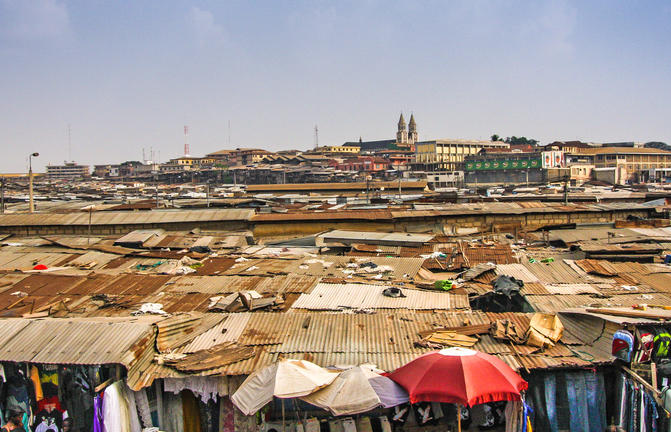
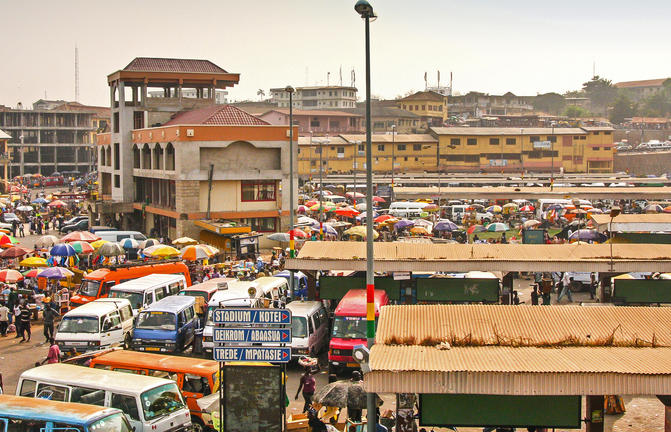
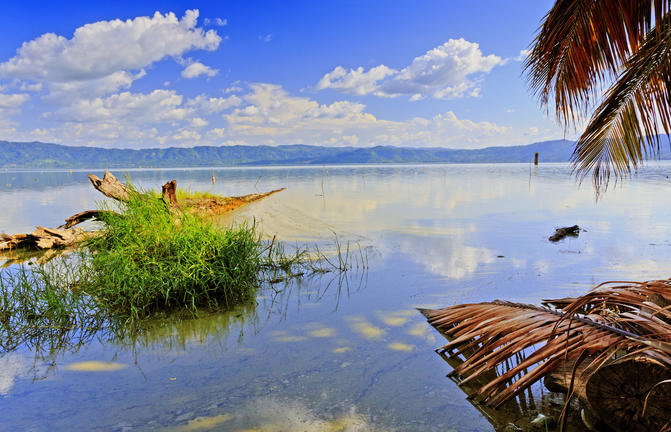
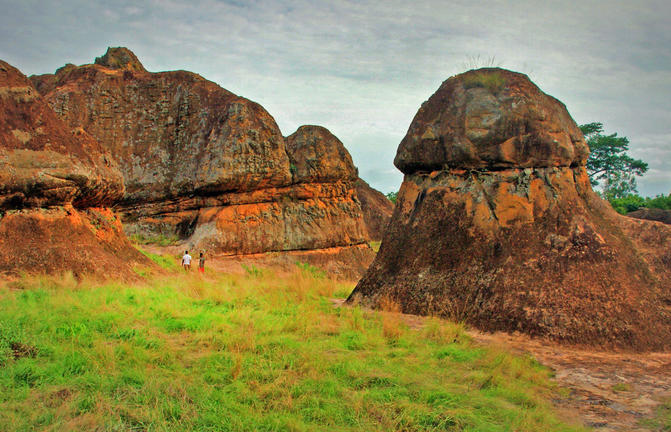
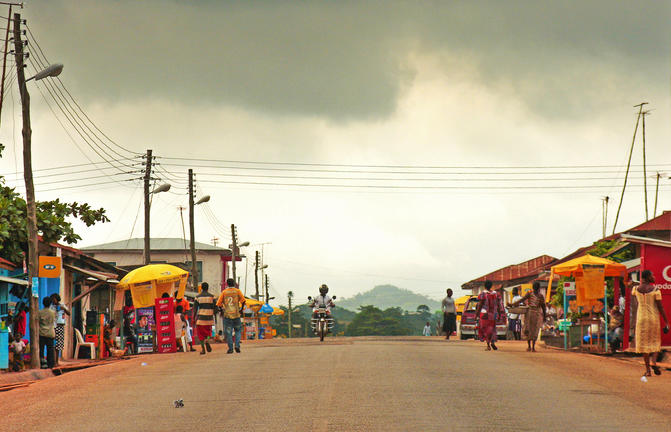
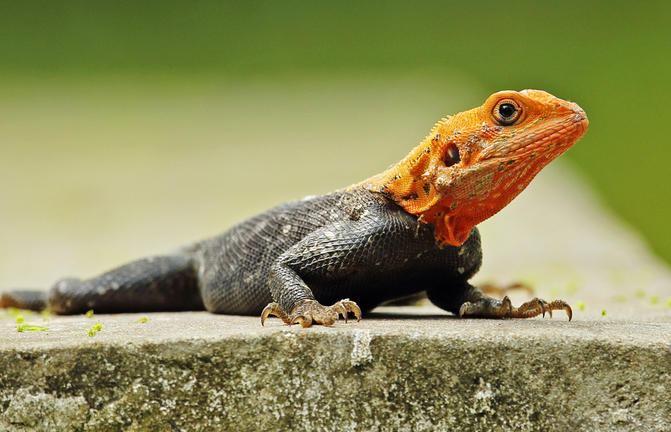
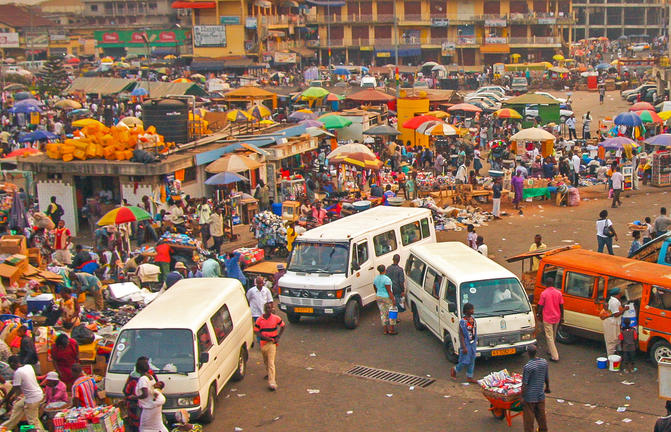
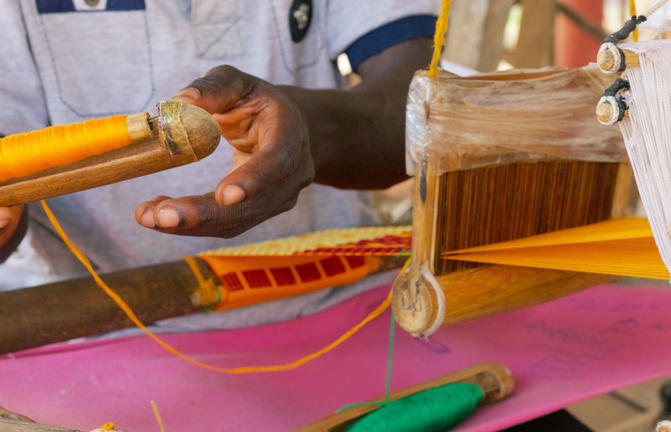
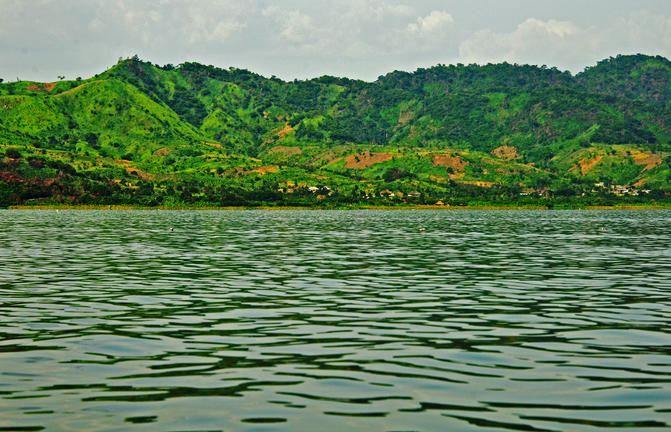
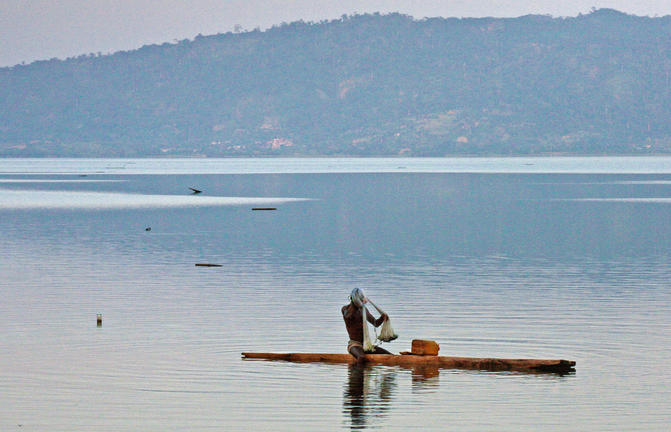






Located along the south coast of Ghana, the fishing port of Elmina is best-known for its beautiful beaches and serves as the capital of the region. It is also known as a historical slave trading port and offers visitors a glimpse into the tragic history of the slave trade. Visitors can learn more about the area's past by visiting a number of fascinating sites including: the 17th-century Fort St. Jago, the Elmina Java Museum, the Dutch Cemetery and Elmina Castle, built by the Portuguese in 1482, it is the oldest European building in existence south of the Sahara.
As previously described










Set along the magnificent Atlantic Coast in West Africa, the off-the-beaten-track country of Togo is known for its varied landscapes, pristine white-sand beaches, and diverse cultural heritage. Togo also offers a huge dose of tradition, with almost 40 different ethnic groups celebrating their rich culture and traditions with an array of festivals held throughout the year. Visitors can laze on the palm-fringed beaches of Lome and Aneho, view the amazing 17th-century mud huts of Koutammakou, and explore the country’s spectacular interior, known for its cocoa and coffee plantations and undulating savannah-covered hills traversed by a network of scenic hiking trails. Other highlights include visiting hilltop villages, browsing the fascinating fetish market, and soaking up Togo’s beautiful wilderness at the national parks of Fazao and Keran.






Situated on Africa’s west coast fringing the Gulf of Guinea, the charming city of Lome serves as the capital and largest city of Togo in West Africa. Once known as ‘The Pearl of West Africa’, today it is a sprawling city boasting palm-lined boulevards edged by colonial buildings, a variety of street-side eateries and vibrant markets. Highlights include: the Akodessewa Fetish Market, selling voodoo items; the National Museum housed in the Congressional Palace, displaying an array of traditional West African masks, musical instruments and jewellery; as well as the UNESCO-listed traditional mud-tower settlements of the Batammariba in the Koutammakou. Visitors can also look forward to soaking up Lome's rich cultural heritage featuring a mix of German, Portuguese and British influences, or relaxing at a beachside hotel after a long day of exploring the fascinating city streets.
Situated in West Africa, Benin is known for its pristine beaches, bountiful wildlife and rich history. Benin features stilted villages, numerous national parks and a dark past linked to the slave trade. This French-speaking West African nation is also known as the birthplace of the Voodoo religion. Visitors can explore French colonial architecture in the laid-back capital of Porto Novo; discover the bustling commercial hub of Cotonou, home to an impressive cathedral and the vibrant Dantokpa Market; and spot aardvarks and cheetahs at W National Park. Other popular attractions include: the Royal Palaces of Abomey, the Ouidah Museum of History and the eerie Door of No Return.
Located on the infamous strip of West Africa’s shoreline known as the Slave Coast, Ouidah was once the country’s human trafficking trade capital. During the 18th and 19th centuries, enslaved people were captured from all over the region and taken to the town to be shipped to other parts of the world. Today, this tragic episode is commemorated with a memorial trail lined with monuments, including the Tree of Forgetfulness and the Door of No Return. Benin is the birthplace of the original form of voodoo – known here as Vodun – and one of Ouidah’s most intriguing attractions is the Temple of Pythons, home to around 60 snakes held holy in this animist religion. Another must-see is the Sacred Forest – dotted with statues representing Vodun deities.












Cotonou is Benin’s biggest city and a key financial hub located on the country’s south coast – crowded, cosmopolitan and potently atmospheric. There is nowhere better to experience its essence than at Dantokpa Market – West Africa’s largest outdoor market, sprawling over 200 000 square metres. Vendors peddle a vast and eclectic assortment of spices, fresh produce, traditional African prints, religious ornaments, jewellery and more. The market’s sheer size is intimidating, not to mention the crowds and frenzy within, but its vibrant energy and excellent shopping opportunities make it well worth a visit. Other highlight attractions are the Cotonou Cathedral, with its candy-striped facade of wine-red and white tiles, the Fondation Zinsou, an art museum showcasing contemporary African art and cultural displays, and to the west of the city, lovely Obama Beach.
The town of Abomey, located in the Zou Department of southern Benin, was once the capital of the ancient kingdom of Dahomey. It is home to sacred tombs, a fascinating museum, and the majestic Royal Palaces of Abomey, inhabited by the Kings of Dahomey, which have been declared a World Heritage Site by UNESCO. Visitors flock here to view these stately structures and soak up the history of Benin. These enchanting earthen structures lie in ruins except for the surviving palaces of Glele and Ghezo, which form the Historical Museum of Abomey, featuring bas-reliefs lining the walls and an eery throne mounted on human skulls. Don’t miss the opportunity to view the traditional crafts and applique textiles at the local crafts and arts centre.












Situated in West Africa, Benin is known for its pristine beaches, bountiful wildlife and rich history. Benin features stilted villages, numerous national parks and a dark past linked to the slave trade. This French-speaking West African nation is also known as the birthplace of the Voodoo religion. Visitors can explore French colonial architecture in the laid-back capital of Porto Novo; discover the bustling commercial hub of Cotonou, home to an impressive cathedral and the vibrant Dantokpa Market; and spot aardvarks and cheetahs at W National Park. Other popular attractions include: the Royal Palaces of Abomey, the Ouidah Museum of History and the eerie Door of No Return.
Nestled in the savannah of northwestern Benin, Pendjari National Park forms part of a vast nature reserve shared with Burkina Faso and Niger. The surrounding hills and cliffs of the Atakora mountain range provide a backdrop of splendour and serene isolation. The reserve is home to large elephant and lion populations, as well as hippopotamus, buffalo, cheetah, leopard, antelope, warthog and more wildlife. It is a bird watcher's paradise with over hundreds of different avian species, including hooded vultures, booted eagles and Pel's fishing owls. In 2017 it was officially acclaimed a UNESCO World Heritage Site. The welcoming and traditionally authentic tribal villages nearby provide rich ceremonial and cultural experiences with large clay castles, traditional carvings and bronze figurines.










Set along the magnificent Atlantic Coast in West Africa, the off-the-beaten-track country of Togo is known for its varied landscapes, pristine white-sand beaches, and diverse cultural heritage. Togo also offers a huge dose of tradition, with almost 40 different ethnic groups celebrating their rich culture and traditions with an array of festivals held throughout the year. Visitors can laze on the palm-fringed beaches of Lome and Aneho, view the amazing 17th-century mud huts of Koutammakou, and explore the country’s spectacular interior, known for its cocoa and coffee plantations and undulating savannah-covered hills traversed by a network of scenic hiking trails. Other highlights include visiting hilltop villages, browsing the fascinating fetish market, and soaking up Togo’s beautiful wilderness at the national parks of Fazao and Keran.
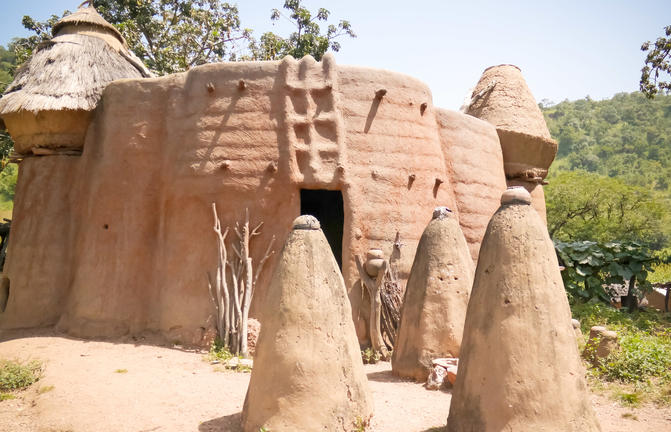
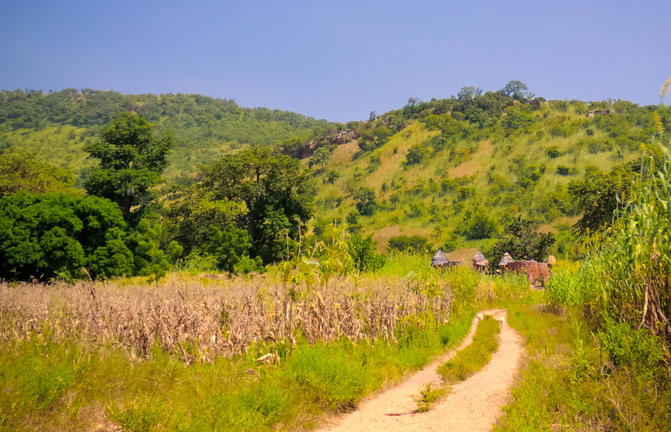
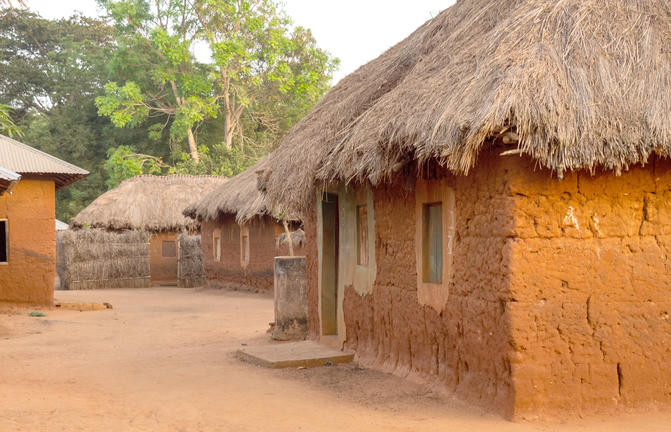
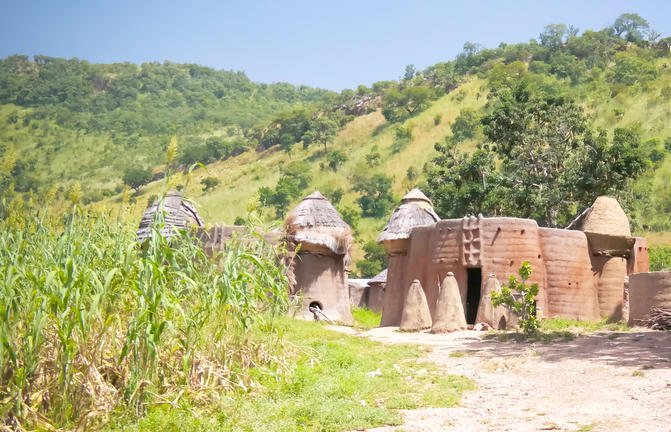
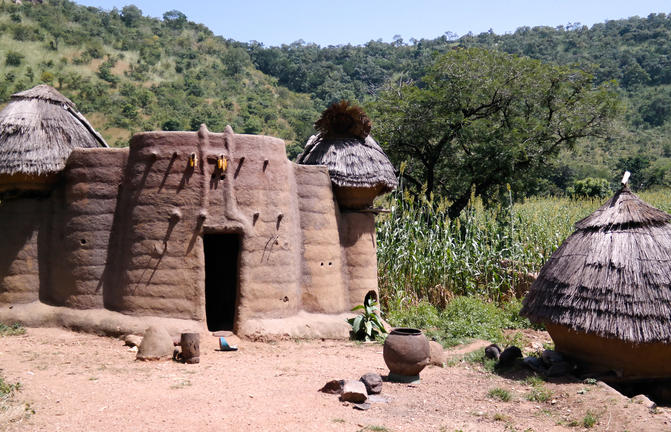
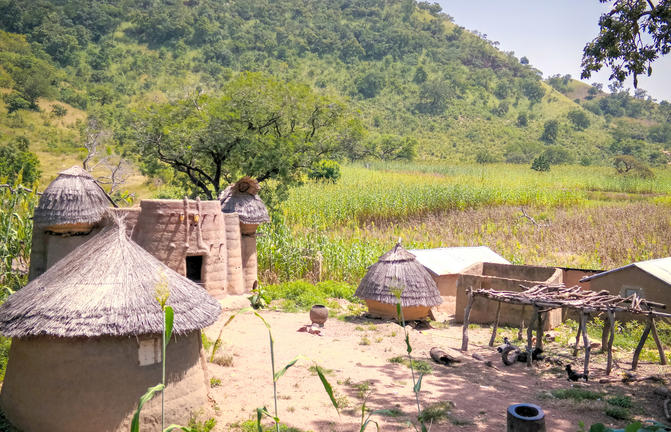
Kara is the capital of the Kara Region in Northern Togo, where the majestic Kara River snakes its mesmerizing way through the city. The city is buzzing with marketplaces, pubs, and luxury hotels to enjoy, and for nature lovers, majestic Parc Sarakawa lies just beyond Kara's borders, easily accessible as a day trip. Sprawling over 607 hectares, this park is teeming with antelope and buffalo as they roam freely beside ostriches and zebras. Moving further afield, travellers will be enchanted by Koutammakou; 50 000 hectares of UNESCO-protected land in Kandé, housing Batammariba tower houses - the iconic symbols of the region. For the artistically inclined, Musée AFRICART Kara, the museum for the art of African masks and sculptures, is an ideal stop to admire the breathtaking artistry of different cultures of Africa.
Sandwiched between the West African countries of Cote d'Ivoire and Togo in the Gulf of Guinea, Ghana is a friendly and largely safe country with locals who are usually eager to help first-time foreigners find their feet on African soil. This spectacularly scenic nation boasts an exquisite tropical coastline and exceptional national parks providing a haven for some unusual flora and fauna. The capital, Accra, is a thriving metropolis replete with bustling markets, luxury hotels and lively nightlife. Fill your itinerary with visits to gorgeous palm-fringed beaches, ancient forts, historical castles, and quaint fishing villages. Whether you are seeking a relaxing beach vacation or are keen to immerse yourself in the fascinating ancient cultures of this nation's diverse ethnic groups, Ghana offers a unique and compelling African experience.
Located at the confluence of three ancient trade routes, the vibrant, fast-growing city of Tamale rests in the heart of the northern region of Ghana in the kingdom of Dagbon. Tamale is a buzzing commercial hub of the region featuring an architectural mix of traditional mud houses, ornate mosques and more modern buildings including the new Tamale stadium. Visitors can immerse themselves in local culture by visiting the Kukuo Pottery Village or the Dakpema Palace where the Tamale king resides, sip the local non-alcoholic maize brew called Toose or ginger lamujee drink while watching the sunset, sample the traditional cuisine of grilled guinea fowl, waakye; or enjoy the buzzing northern Ghanaian music scene. Nature lovers can investigate the vast lush forest space and savannahs of the Mole National Park which boasts a myriad of wildlife including leopards, buffalo, elephants, hippos, and birds such as the white-backed vulture.












A vibrant city in the Upper East Region of Ghana, Bolgatanga is rich in cultural heritage and diverse activities for visitors. Explore the bustling Bolgatanga Market, one of Northern Ghana’s largest, where colourful textiles, handicrafts, and fresh produce create a sensory delight. Nearby, the Tongo Hills offer stunning natural landscapes with ancient granite formations and the sacred Tengzug Shrine. In the town of Paga, the sacred Paga Crocodile Pond allows for close encounters with docile Nile crocodiles. Navrongo, a short drive away, features the impressive Navrongo Cathedral with its beautiful architecture and serene atmosphere. Bolgatanga is also renowned for its intricate basket weaving; visitors can engage in hands-on workshops with local artisans. The annual Bolgatanga Cultural Festival in April celebrates traditional music, dance, and crafts, showcasing the region’s rich cultural heritage. Just outside the city, the Sirigu Women’s Cooperative preserves traditional art and empowers local women through pottery and textile production.






